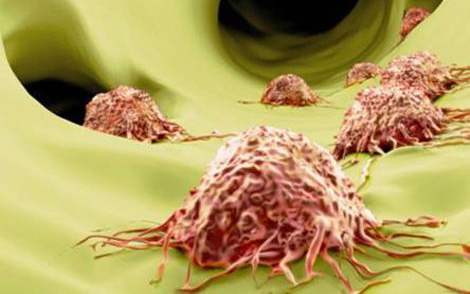5 cancer drugs that can cause secondary cancer

Discovering the cause of cancer cells can metastasize
A new study conducted by Chinese scientists has shown that bacteria in tumor cells helped the tumor shift position, while promoting cell survival during the process. tumor growth.
1. Tamoxifen may increase the risk of uterine cancer
Tamoxifen belongs to a class of drugs called selective estrogen receptor modulators (SERMs), meaning that it helps to block/block the hormone estrogen in some tissues of the body, but has estrogen-like effects in others.
Content
1. Tamoxifen may increase the risk of uterine cancer 2. Cisplatin increases the risk of acute blood cancer 3. Cyclophosphamide may cause secondary cancer 4. Vemurafenib increases the risk of skin cancer 5. Etoposide increases the risk blood cancer
In mammary gland cells, tamoxifen helps block estrogen – a hormone that has the ability to promote the proliferation of cancer cells. Therefore, tamoxifen has the ability to reduce the risk of breast cancer.
However, tamoxifen has estrogen-like effects in the uterus, so it may increase the risk of uterine cancers, including endometrial cancer and uterine sarcoma. The probability of an increased risk of uterine cancer with tamoxifen is usually low (less than 1%) and usually returns to normal after a few years of stopping the drug. Women over the age of 50 are more likely to have this risk than younger women. If you have had a hysterectomy, you do not need to worry because you will not be at risk for these two types of cancer.
Patients should tell their doctor if they experience vaginal bleeding or spotting (especially after menopause) while taking tamoxifen.

Some drugs are effective in preventing and treating cancer, but they can also cause other types of cancer.
2. Cisplatin increases the risk of acute blood cancer
Cisplatin is a platinum-containing cancer drug with cytotoxic, anti-tumor effects and biochemical properties similar to alkylated substances. This is an intravenous drug used to treat many types of advanced or metastatic cancer including cancer of the testicles, ovaries, bladder; squamous cell carcinoma of the head and neck; small cell and non-small cell lung cancer.
Although the effectiveness of cisplatin has been demonstrated for these cancers, cisplatin also increases the risk of other cancers, including acute leukemia (acute blood cancer). Tell your doctor right away if you have any of the following symptoms: joint pain, fever, pale skin, unusual bleeding or bruising, unusual tiredness or weakness, weight loss or swollen lymph nodes neck, armpit, groin or abdomen.
3. Cyclophosphamide can cause secondary cancer
Cyclophosphamide is a cytotoxic agent, indicated in the treatment of various cancers such as malignant lymphoma, multiple myeloma, breast carcinoma, ovarian adenocarcinoma… Cyclophosphamide has cancer-killing effect by destroying the DNA of cancer cells.
In addition to common side effects such as increased risk of infection, shortness of breath, paleness, bruising, hair loss… cyclophosphamide may also have a risk of secondary cancer, most typically acute blood cancer. and bladder cancer with a probability less than 1%.
The risk of cancer from taking cyclophosphamide can persist for many years, even after patients have stopped taking the drug. This risk depends on the total duration and total dose of cyclophosphamide the patient has taken.
4. Vemurafenib increases the risk of skin cancer
Vemurafenib is a medicine used to treat skin cancer (melanoma) that has spread to other parts of the body or cannot be surgically removed. Vemurafenib is only used in patients whose tumor cells contain the ‘BRAF V600’ mutation.
Vemurafenib is an inhibitor of BRAF – a protein involved in the stimulation of cell division. Skin melanoma tumors carry the BRAF V600 mutation – an abnormal form of BRAF that plays an important role in cancer development by causing uncontrolled tumor cell division.
By inhibiting abnormal BRAF activity, vemurafenib helps slow the growth and spread of cancer. However, one of the most common serious side effects of vemurafenib is also another type of skin cancer, including cutaneous squamous cell carcinoma and keratoacanthoma.
5. Etoposide increases the risk of blood cancer
Etoposide is a chemotherapy drug belonging to the plant alkaloid group, which can inhibit the activity of topoisomerase II – an enzyme necessary for cell replication and tumor growth. Blocking this enzyme causes breaks in the DNA strand and thus cancer cell death.
Etoposide is used to treat cancer of the testicles, bladder, prostate, lung, stomach, uterus, and many other types of cancer. It is worth noting that patients treated with etoposide may still have a low risk of developing blood cancers, such as leukemia, many years after taking the drug.
Except for the above 5 drugs, all drugs in general have certain side effects, especially prescription drugs. Therefore, the use of drugs by patients should follow the instructions of the doctor and carefully advise from the clinical pharmacist.
Health Life
at Blogtuan.info – Source: cafebiz.vn – Read the original article here



